Are you planning a trip to Thailand!!
Before travelling to Thailand
It’s essential to do some preliminary research to enhance your experience and ensure a smooth journey.
These steps can help you feel more prepared and make the most of your trip.
1-Visa / Passport
Passport validity.
If you plan to visit Thailand, please make sure your passport is valid for at least six months.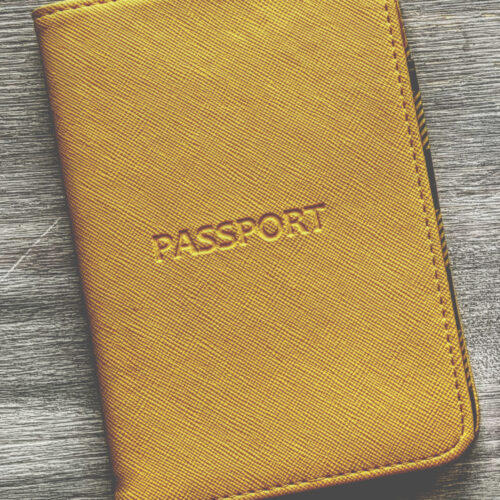
Please verify with your travel provider to ensure your passport and other required documents meet their specific requirements.
Visas
Most foreign passport holders need a tourist or business visa to enter Thailand. Thailand has introduced an ‘e-visas’ system through which applications can be submitted and approved online before travel.
2- Check Health Precautions
Certain parts of Thailand may pose specific health risks, such as infectious diseases. Before travelling to these areas, it’s essential to consult your doctor or a travel health clinic for any necessary vaccinations or medications.
To ensure your safety, ensure you are up to date on all routine vaccines before every trip. Some of these vaccines are included or recommended for travel.
*Chickenpox (Varicella)
*Diphtheria-Tetanus-Pertussis
*Flu Shot
*Measles-Mumps-Rubella (MMR)
*Polio
*Typhoid (Recommended for most travellers, especially those staying with friends or relatives or visiting smaller cities, rural areas, or the jungle.)
*Hepatitis A / B Recommended
3-What’s inside my medicine bag?
Over-the-counter medicines
- Antacid Diarrhea medicine
- Antihistamine
- Motion sickness medicine
- Cough drops
- Cough suppression/expectorant
- Decongestant
- Medicine for pain and fever
Mild laxative - Mild sedative or other sleep aid
- Oral rehydration salts…name it
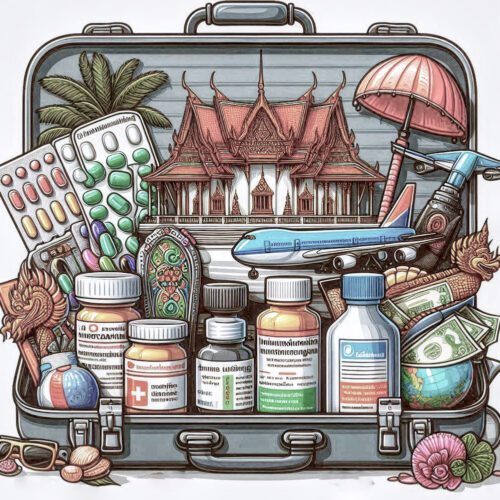
First-aid kit
- 1% hydrocortisone cream
- Antifungal ointments
- Antibacterial ointments
- Antiseptic wound cleanser
- Insect bite treatment
Anti-itch gel or cream - Bandages
Multiple sizes, gauze, and adhesive tape - Scissors and safety pins
- Cotton swabs (Q-Tips)
- Tweezers
- Eye drops
- Hand sanitizer or wipes
Insect repellent - Sunscreen
Sunglasses and a hat
4-Documents
I always carry my travel shots card with me.
A health insurance card and a copy of your prescriptions.
5-Contact Your Banks
It’s essential to let your bank know that you’ll be travelling to Thailand to avoid issues with using your debit or credit cards abroad. Some banks may detect unfamiliar transactions in foreign countries and mistakenly identify them as fraudulent activity, potentially leading to your card being suspended or revoked.
**My Take:
I recommend carrying some local currency for smaller purchases or emergencies. Two debit/Visa cards are also a good idea to ensure a backup in case one gets stuck in an ATM.
**A card suspension while abroad can be highly inconvenient. I know this from my sister’s experience. Despite the bank being aware of her travel plans, her card was still suspended. It’s always best to be cautious.
6-Know the Exchange Rate
Be aware of the current exchange rate before you arrive, especially if you plan to exchange money rather than use local ATMs. Know how to spot fake banknotes.
**My Take:
Not all exchange booths offer the same rate in Thailand. Please always ask before you exchange your money.
Also, count your money in front of the teller before leaving and keep your receipt.
Sometimes, it’s not worth exchanging leftover money back into your home currency. Instead, could you consider spending it at the duty-free shop?
7-Notify the Government
It is not mandatory, but travellers can notify the Government about their travel plans free of charge through a website.
If civil unrest or a natural disaster occurs during your trip, the authorities will know that you may require evacuation. Additionally, participants in the program will receive travel alerts for each destination, enabling them to adjust their plans and avoid inadvertently entering a dangerous situation upon arrival at the airport.
**My take:
Print the consulate address and keep it in your wallet.
8-Get Travel Insurance
Travel insurance can provide peace of mind during unexpected medical emergencies, trip cancellations, or lost luggage.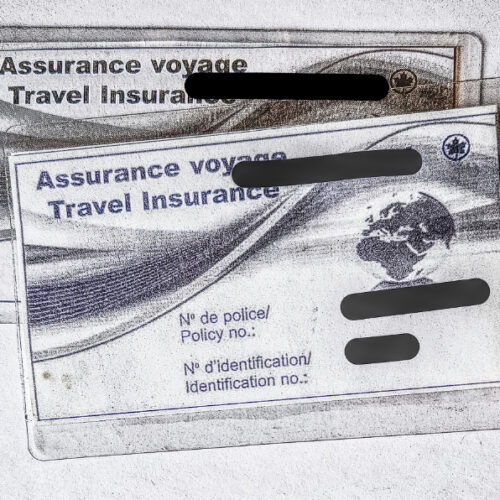
Make sure you’re adequately covered for your trip. It protects you from theft and accidents while abroad. Built-in travel insurance on credit cards rarely provides sufficient coverage, and you may encounter difficulties when filing a claim later.
9-Inform Someone of Your Itinerary
It’s a good idea to leave a copy of your itinerary with a trusted friend or family member back home. Could you include details such as your flight information, accommodation bookings, and planned activities?
This can be helpful in emergencies or if someone needs to reach you while you’re away.
10. Make an itinerary.
Don’t overplan. You can always change it when you’re there; you might find more suitable options. You never know what will happen.
Instead, you can create a plan with little flexibility, leaving room for changes in your itinerary.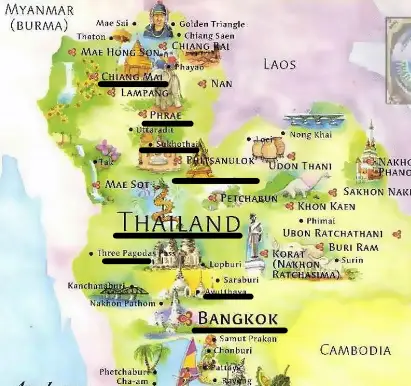
**My Take:
I usually visit one or two places from my list, and then the rest while I am there. Could you print out a list at home if you have specific places to visit? I do that for all my trips.
11- Learn Basic Phrases:
You can just familiarize yourself with some basic phrases in the local language of the country you’re visiting. Even a few words can go a long way in breaking down language barriers and showing respect for the local culture.
Learn greetings like ‘hello’, ‘good morning’, etc.
Nowadays, your phone will likely have an app for language learning.
12-Learn about their customs
Different countries in Asia have their cultural norms and customs. Research the local etiquette, including proper greetings, dining etiquette, and gestures, to avoid inadvertently offending.
Knowing what is appropriate to wear in places like churches and temples can be helpful. You cannot enter some places without adequate protection.
13-Reserve Your Hotel
A month or so before your trip, you can search for a hotel within walking distance.
**My take:
Find a hotel close to all the attractions you want to visit, ideally within walking distance. Also, keep the address of your hotel with you so you can give it to the taxi driver when you leave the airport.
14-Check for Events and Festivals
Arriving during or just before a significant event you didn’t know about can be a hassle.
You’ll likely encounter more trouble with crowded transportation, and room prices are often higher during major holidays. Could you check for big festivals before you travel?
**My Take:
During our last Easter holiday trip, we struggled to find parking, which resulted in missed opportunities to see certain places. The area was overcrowded, and prices were inflated not only for hotels but also for food.
15-Arrange Transportation
When you arrive in Thailand, please plan how you’ll get around. Depending on your destination, you may need to arrange Transportation from the airport to your accommodation or between cities.
**My take:
Before you take a tuk-tuk or taxi, please ask for the price upfront. If you don’t, they will charge you more.
16-Know Duty and Customs Restrictions
It’s wise to be aware of duty restrictions in advance, as it can help you avoid unnecessary trouble.
Please be aware of the fake items sold at the night market. There are too many of them, and you might have trouble with customs. It’s best to be honest about your purchases when dealing with them.
**My take:
A few years ago, bringing fake stuff was not a problem, but now customs are trying to limit the number of counterfeit articles.
17-Pack Accordingly:
The climate can vary greatly depending on the region and the time of year. Please ensure you pack appropriate clothing and gear for the weather and activities you plan to participate in.
*Don’t forget essentials like sunscreen, insect repellent, and any specific medications you may need.
18-Download Useful Apps
Before your trip, download helpful travel apps to make your journey easier. To make travel easier.
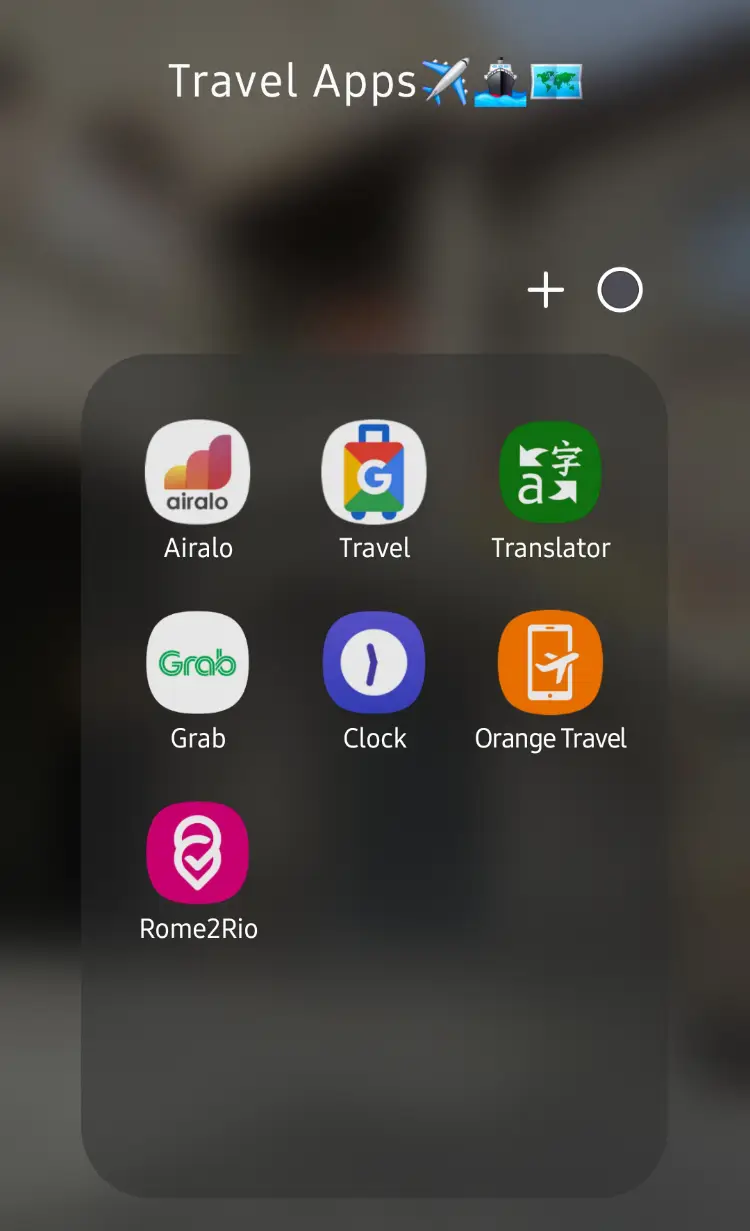
** Grab
When visiting Thailand, Grab is an essential app to have on hand. Renowned for its efficient and convenient transportation services, Grab offers a more cost-effective alternative to hailing a taxi from the street corner. With the Grab app, you can receive a price quote for your ride before even stepping into the vehicle, ensuring transparency and peace of mind during your travels.
** Klook
I recommend downloading and using Klook. It’s what the locals use when they travel, which means that within Thailand, it has the most options for things to do and also the best prices.
** Airalo
In my opinion, the best eSIM for Thailand is Airalo.
If you aren’t familiar with eSIMs, they allow you to connect to mobile data in Thailand without needing a physical SIM card.
It’s super convenient, and the coverage across Thailand is incredible. The price is very affordable.
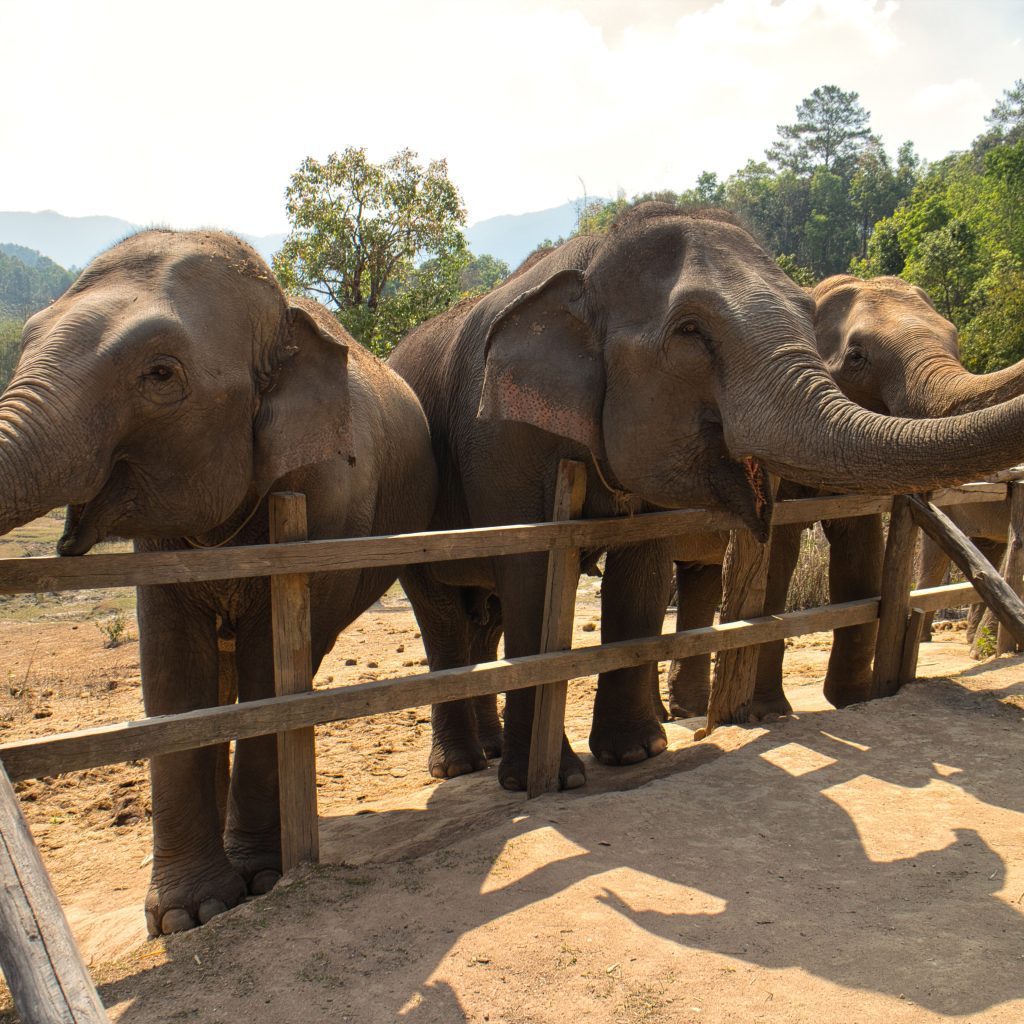


This was a really helpful breakdown of what to do when planning a trip to Thailand. I’m sure this list could apply to other countries as well.
Yes it will help for other country except for the malaria pills lol…
I’ve never considered a trip to Thailand but this post was very interesting and has me wanting to learn more about that area. Thank you!
You should look at my post on Chiang Mai…it is a beautiful place to visit in Thailand.